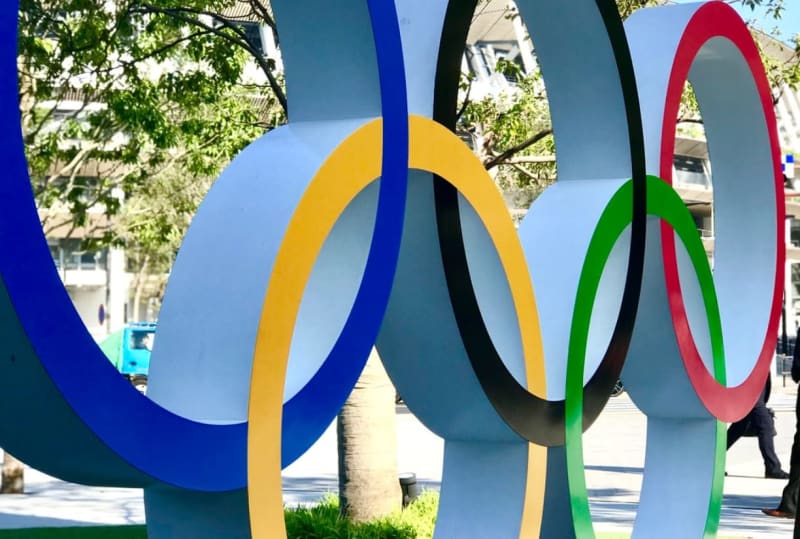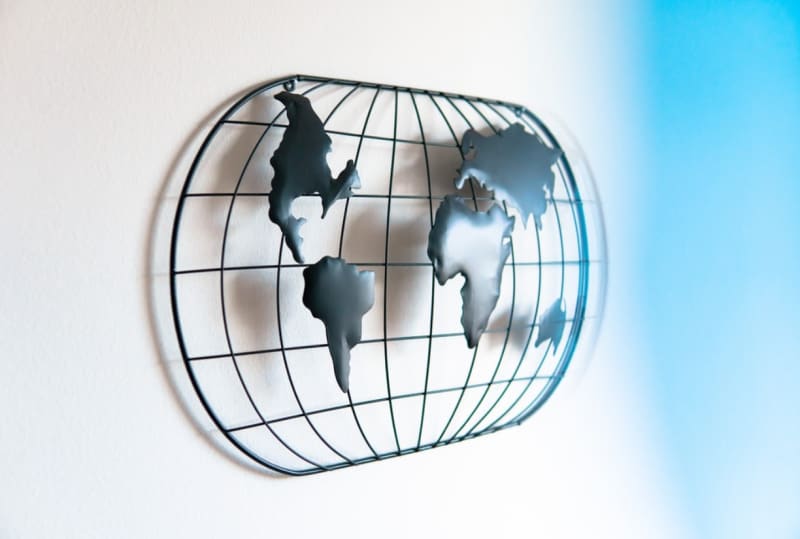The Horn of Africa States faces on the African side one of the most important seaways of the world. Eritrea, Djibouti, and Somalia and all buttressed by Ethiopia, which together represent an equivocal and important chokepoint, the Bab-El-Mandab straits, although the same strait also faces on the other side another troubled country, Yemen. It is often reported that about 10% of the world’s trade and about 11% of crude oil passes through this strait. The four countries of Somalia, Ethiopia, Eritrea, and Djibouti (“HAS”) form the main rump of the Horn of Africa States. It could be joined by Kenya, in the future and may be others, like Sudan and South Sudan as well. Just as Europe is expanding, HAS would need to expand, too. It needs to be successful to be attractive to others, though.
The Horn of Africa States, therefore, represents, for both regional and major powers, a truly strategic location, which together with its population size, currently some about a hundred and fifty million and expected to increase to about two hundred million in the not-too-distant future, renders it a place of hope. In its divided nature of today, it is a place where wars, both cross border and within borders of the potential member states, is a source of human misery, because of the competition within and from without for its control without any regard to the disasters this causes to the local populations of the region, including Yemen, the only other miserable country, that faces the same strait on the Arab side.
The competition for the waters of the region, the Red Sea, the Gulf of Aden and the North Indian Ocean, and the waters of the Nile, adds another dimension, which makes it even more important to be carefully weighed and balanced between all the competing interests, for it can serve all, without unduly tilting to one or the other(s), who have interest in it. Instead of being divided, it is best that they come together as partners to look after their collective interests. United they would be stronger and disunited, as they are today, they become prey to others hovering around them, as they are today, and cause headaches for the individual political leaderships within each country and/or instigate issues between the individual countries, and there are plenty of matters any two countries can quarrel about, as is within countries, as well.
•vp> The Political Focus
The present leadership of the Horn of Africa, know that they are targets for they are the ones who hold the destiny of their peoples and countries in their hands, and who therefore can be used by others for whatever they choose. It is, therefore, important that the leaderships stop for a few minutes and examine themselves and what they represent, and what they stand for. It can be limited to the geographical spaces under their control or the more expansive regional setting. It would seem they have been made busy dealing with constant fires popping up here and there within their geographical control zones, where once they stump out one fire, another pops up somewhere not far, within the same country.
The leaderships of the Horn of Africa States, including those currently in power or those aspiring to replace them, should note that their minds should be taken from concentration in the present and putting their minds to work in the future for it is the future that holds the destiny of their peoples and countries. A united Horn of Africa would be a much improved and better a goal than the individual and smaller entities they rule today. Their minds are capable of doing so and it would be good for the region and its population.
•pv> Historical Justification
The Horn of Africa is one of the first places of human habitation, and hence civilization. They are said to have domesticated the camel, were one of the first peoples to ride horses and also cross seas and oceans and created empires across seas. They traded with the ancient Egyptians, the ancient Greeks and Phoenicians and the Romans and as far as China, and therefore, are capable of building a naturally cohesive and strong community, if they put their minds and resources together instead of serving others who came to take advantage of their internal conflicts. Every society must have internal issues, but these are settled through discussions, debates and through legislation. They are not settled through the gun, the ultimate nature of human bestiality. They defended themselves against the European invasion of the end of the nineteenth/early twentieth centuries, which they won some and lost others. The battle of Adwa of Ethiopia against the Italians at the end of the nineteenth century and the Anglo-Somali war in the first quarter of the twentieth century are examples. But the Horn of Africa is a region that works with others if there is an equilibrium of matters, where the resources are shared equitably and especially with those who do not want to lord over them. Their relations with the ancient Egyptians or the Greeks or even the Arabs, was generally balanced and useful and served all parties.
•pv> The East and West Relations
Because of the importance of the location of the region, both the East and the West compete to have their ultimate influence over them. They should only look to tiny Djibouti that the region can accommodate both the East and West without giving undue preference to one or the other of these non-regional forces. Djibouti today hosts the naval forces of the United States, China, the French, Germany and even Japan and South Korea. It is a region, which is capable of handling complex matters with ease should they choose to do so.
The old East/West confrontation, which some want to recreate in the region is not a workable solution for the region. The Horn of Africa States should be wary of such maneuverings and determine its destiny by not leaning to one or the other of the competing forces. They would all realize that it is in their best interests to leave the region alone, just as Switzerland was left alone during the Second World War. It would serve all, should they let it be.
•pv> The Gulf States
The Gulf Countries of Arabia, represent the closest region to the Horn of Africa States. In fact, they are just on the other side of the waters that divide them physically – the Red Sea, the Gulf of Aden, and the Arabian Sea. It should be natural for the two regions to co-operate and work together. However, the Horn of Africa States are wary of these GCC countries for they look at and see what they have done to their own brethren, the Yemenis. If they can destroy their own people, with all the weapons they have acquired over the years on one of their own, how would the people of HAS have trust in them. Although it would be ideal to have them invest their monies in the region, it would be better first that they sort out the damage they have done to Yemen.
Over the past two decades, the GCC countries have shown interest in the region, sometimes competing among themselves, but the investments they made were half-hearted and not truly genuine, at least from the point of view of the local populations of HAS region. The populations also felt some uncalled-for arrogance because they had monies, which the peoples of the region, did not appreciate. The GCC countries, soon found out that most of their feeble investments were not working in the direction they have hoped for and have resorted to violence, assisting one or the other of the opposing parties within the region. The UAE works arrogantly with regions of Somalia instead of with the Federal Government of Somalia to undermine the fragile but emerging governing system of the country. The Kingdom of Saudi Arabia founded the Council of the Countries of the Red Sea and the Gulf of Aden in early 2020. This does not appear, however, to be working as a viable platform. The Gulf countries despite their closeness to the region and their abundance of resources, which they could deploy in the region, have miserably failed and they would, therefore, need to recalibrate their intentions and how they want to achieve them or co-operate with the Horn of Africa States.
The Gulf States are, strangely working so hard to shooting themselves in the feet. The Horn of Africa throughout history, had cultural and commercial links with the Gulf States, but it appears the relationship was only good, because in the past the Horn of Africa States looked after its poor neighbor – the Gulf States. Now that the situation is reversed and the Horn of Africa is now the poor, while the Gulf States are the richer, they failed to return the goodness of the past to the Horn of Africa but are leaning heavily on the region through incredibly thoughtless actions.
In the past the relationship, at least on the part of the Horn of Africa States, was seen as mutually complementary between the Horn of Africa States and the Gulf countries, but the latter has converted this old relationship to one of friction, almost colonial in nature, as if they are copying the Europe of the nineteenth century. The Gulf has not given thought to its capabilities and for that matter, that of the Horn of Africa. The Gulf would be best served should it revisit its present relationship with the Horn of Africa and improve it. Adversarial interactions are difficult to manage, under the circumstances and especially, when the whole Afro-Asiatic geographic link is not only important for the region but for the rest of the world, too.
•pv> The Egyptian Dilemma
Although Egypt enjoyed a peaceful relationship and co-operation through trade and scholarship with the region for thousands of years, the relationship with the region seems to have been strained over the past century and a half and this could only be explained by Egypt’s deep internal fear. One should note that Egypt’s lives on and thrives on two major resources – the River Nile and the Suez Canal. It appears that the relationship was perhaps only good on the part of the Egyptians because they did not know the source of the Nile before the arrival of Europe’s age of discovery, and thought it was a gift of God only that fell from the sky. Note they worshipped the sky God “Geb” and the Earth God “Nut” (www.laits.utexas.edu). There was no Suez Canal before 1869, when the famous French diplomat Ferdinand de Lesseps completed tearing the earth to link the Mediterranean Sea to the Red Sea. Both the River Nile and the Suez Canal are eternally linked to the Horn of Africa States, with the Blue Nile, whose source is Ethiopia, providing most of the Nile waters that reach Egypt and the all the shipping that must transit through the Suez Canal, must also transit through the Bab El Mandab (“The Gate of Tears”) and the waters of the Horn of Africa States. Egypt appears to be self-centered and looks after its perceived interests only and what is driving this apparently wrong approach is, its perceived calculations in terms of only these two assets, which Egypt deems necessary for its survival – the Nile River and the Suez Canal.
Wouldn’t it be better for Egypt to work with the region and create a stable region that works with Egypt on a win-win contract? It would certainly not be advisable to create a hostile region. The Horn of Africa is vitally important for Egypt, and it is, in its best interest, not to have it on the other side of the fence. Egypt must realize that Somalia is re-emerging from the political doldrums into which it disappeared in 1991, and that Ethiopia has grown and so have Eritrea and Djibouti and they know where their interests lie, and they would determine their destiny their own way as they have always done throughout history.
The Horn of Africa States must constantly follow the policies of Egypt very closely for Egypt wrongly believes that it should disrupt the advancement of the Horn of Africa States region, which it sees as a danger to its survival. This is really not true. Like any other region in the world and like itself, Egypt, the Horn of Africa States, need to also survive and they will do whatever it takes to do so. The Horn of Africa should make it known to its populations and to those of Egypt, of the disruptive role, the Egyptian Government plays in the Horn of Africa States region, and make it come back to its senses, which is to live with the people of the Horn of Africa, in peace, as their forefathers did.
•pv> The Resources of the Region
This is an agro-maritime economic region. It enjoys an equatorial, tropical savannah, arid and semi-arid and highland regions, and an expansive maritime surface. It gives rise to major rivers like the Blue Nile, the Sobat, the Shabelle, and Juba Rivers, and many more, and is, therefore, an important source for drinking and irrigation waters for the agricultural output of many countries, not only in the region but also beyond as well. According to an African Development Bank Group report of 2018, major opportunities exist in food production, fishing, the clothing industries, extractive industries (oil and gas, other minerals including gold, cobalt, copper, and others), the tourism industry and the blue economy and the infrastructure needed to facilitate and grease the economic system. The region also owns substantial natural resources including oil and gas reserves, wildlife, alternative energy resources (hydro-electric, solar, wind and geothermal), and other mineral resources such as gold, copper, cobalt, manganese, nickel, iron ore, and others.
General Conclusion
A robust collective outreach to the international organizations and countries must be developed by the Horn of Africa States, which present the region in its true nature, a peaceful developing region that is not harmful to anyone, but which would share its resources with the rest of the world, such as the uninterrupted flow of the Nile waters, while serving its populations with energy, peaceful flow of shipping in its waterways of the Gulf of Aden, the Bab El Mandab and the Red Sea and exploitation of its other natural resources both sub-soil and above soil.
Source: Dehai Eritrea Online



